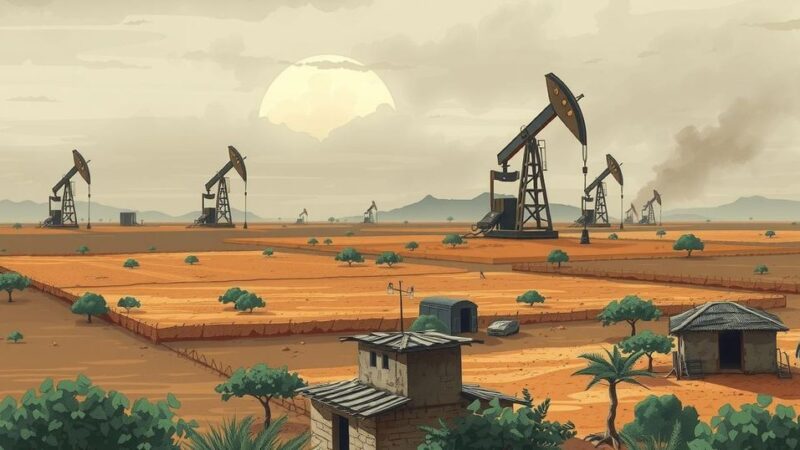Egypt has called on Nile Basin countries to reconsider the Cooperative Framework Agreement (CFA), which has been rejected by Egypt and Sudan while accepted by upstream nations. Minister Hani Sewilam highlighted the need for inclusive discussions, emphasizing that Egypt will not surrender its water rights from the Nile, a resource vital for the nation. President Al-Sisi categorically stated that Egypt’s water resources are existentially crucial, intensifying the urgency for sustainable water management amid rising tensions from the Grand Ethiopian Renaissance Dam project.
Egypt has recently urged the countries of the Nile Basin to revisit the Cooperative Framework Agreement (CFA), known as the Entebbe Agreement, which governs the principles, rights, and obligations for the management and development of the river. While Egypt and Sudan have expressed their dissent towards this agreement, it has been ratified by several upstream nations, including Ethiopia, Rwanda, South Sudan, Uganda, Tanzania, and the Democratic Republic of Congo. During a water event held in Cairo, Egypt’s Irrigation Minister, Hani Sewilam, emphasized the need for collaborative discussions among the Nile Basin countries, encouraging signatories of the Entebbe Agreement to reassess their stance. Minister Sewilam asserted that negotiations should aim to include the interests of all nations involved, rather than prioritizing the aspirations of one over another. He firmly stated, “Egypt will not concede even a single cubic metre of Nile water and firmly rejects the Entebbe Agreement in its current form,” underlining Egypt’s critical reliance on the Nile, which constitutes over 98% of its water supply. President Abdel Fattah Al-Sisi echoed these sentiments, underscoring the crucial nature of Egypt’s water resources by declaring that this issue is existential for the nation. The CFA is seen as a significant advancement in creating a regulatory framework for the Nile Basin but has been contentious—particularly following Ethiopia’s commencement of the Grand Ethiopian Renaissance Dam (GERD) project on the Blue Nile, which Egypt perceives as a threat to its water security, while Ethiopia argues it is vital for its development.
The Nile River, the longest river in the world, flows through eleven countries, with Egypt and Sudan located at its downstream end. The Cooperative Framework Agreement (CFA) was initiated to create a cooperative framework for all Nile Basin countries, aiming for equitable and reasonable utilization of the river’s waters. However, historical agreements have favored Egypt and Sudan, leading to conflicts with upstream countries that seek more rights to the river’s resources. The construction of the GERD by Ethiopia has exacerbated tensions, as Egypt fears it will significantly diminish its water supply, fundamentally impacting its agriculture and water security. The ongoing disputes underline the critical nature of diplomatic efforts concerning the management of shared water resources in the Nile Basin.
In summary, Egypt is advocating for a reevaluation of the Cooperative Framework Agreement among the Nile Basin countries, addressing the urgent need for a comprehensive agreement that safeguards the water rights of all countries concerned. Egypt’s officials have articulated that the ongoing situation is not merely a matter of policy, but an existential matter that directly threatens the nation’s survival. Continued dialogue and cooperation among Nile Basin nations remain imperative to resolving this critical issue.
Original Source: www.middleeastmonitor.com






